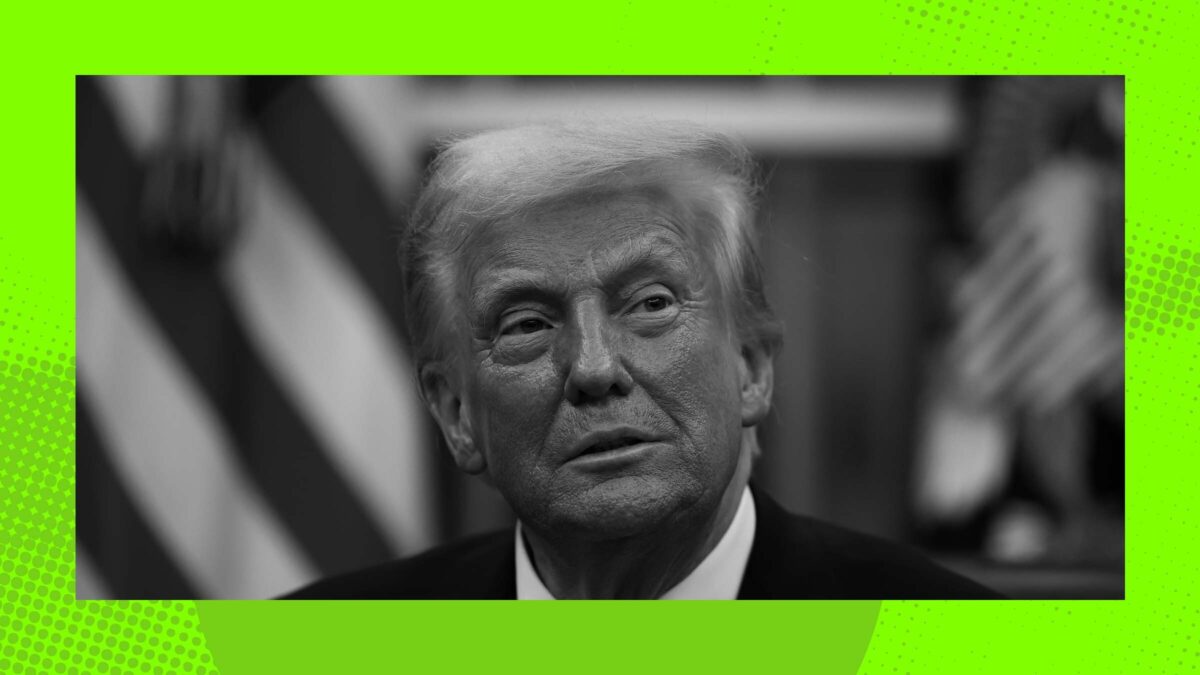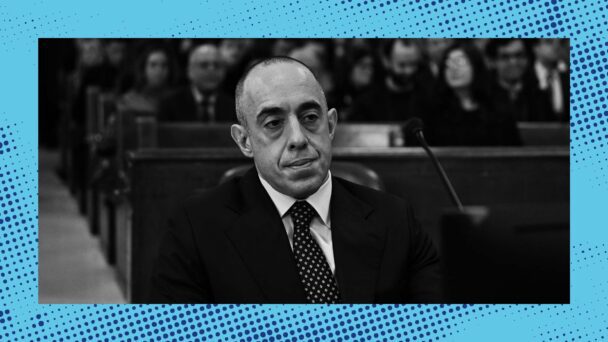Three months ago, President Donald Trump attempted to fire three people who don’t work for him. Thomas Rothman, Laura Ross, and Diane Kaplan all serve on the Board of Directors of the Corporation for Public Broadcasting, a private nonprofit corporation created by Congress in 1967 to fund public media outlets like NPR and PBS. And since Trump considers public broadcasters to be “radical left monsters,” on April 28, all three received an email from the White House informing them that their positions were “terminated effective immediately” at the president’s behest.
Since the president is not their boss, all three have continued to do their jobs, attending board meetings and adopting resolutions. On May 15, the CBC even voted to amend its bylaws to clearly state that no one, “including the President of the United States,” can remove directors without a two-thirds vote of the other directors.
So, last week, Trump’s Justice Department filed a lawsuit trying again to get rid of his disfavored board members. In her complaint, former Fox News host and current interim U.S. Attorney Jeanine Pirro alleged that the directors have been unlawfully “usurping and purporting to exercise” the powers of board members since Trump “lawfully removed” them three months ago. The DOJ complaint asks a federal district court to block the directors from “serving or purporting to serve as board members,” and to undo any official actions they’ve taken since April 28, and to make the directors refund the salaries they’ve received since that date.
The simple fact that the directors are still earning a salary even though Trump doesn’t want them to already suggests that they don’t work for him. But the directors needn’t rely on implication alone: Federal law explicitly establishes the CBC as a nonprofit corporation “which will not be an agency or establishment of the United States Government,” and specifies that Board members are not “officers or employees of the United States.” As such, the three directors filed a lawsuit, too—but they filed theirs on April 29, the day after their purported firings. That litigation is ongoing, but apparently, the DOJ decided it wanted to start anew.
This isn’t the first time that Trump has responded to normal litigation with legal gibberish. A few weeks ago, for instance, Maryland’s federal district court ordered a two-business-day hold on the government kicking migrants with pending habeas petitions out of the country, which would allow the court to actually schedule the hearings to which the migrants are legally entitled. The administration reacted by suing the entire court. On Monday, the 15 judges and the court clerk named in the lawsuit filed a motion to dismiss, and argued that “the obvious and proper way” for the administration to challenge the scheduling order would be “in the context of an individual habeas case.”
Similarly, throughout the last Supreme Court term, the Trump administration opted to forgo the standard appeals process and instead file dozens of petitions citing phony “emergencies” demanding the Court’s immediate intervention. The Court’s Republican supermajority frequently indulged these antics in order to help Trump advance his agenda. And in one especially disturbing case, which greenlit the removal of migrants to random third countries without due process, Justice Sonia Sotomayor observed in dissent that rules seem to apply only to “other litigants” now; the administration, she said, “has the Supreme Court on speed dial.”
Trump’s new lawsuit against the CBC is yet another cockamamie ploy to achieve legal relief to which he is not entitled. His Justice Department regularly advances arguments that self-respecting attorneys should not make. But in Trump’s mind, the job of DOJ attorneys—and the legal system, and the government writ large—is to do whatever he wants, however he wants it.





